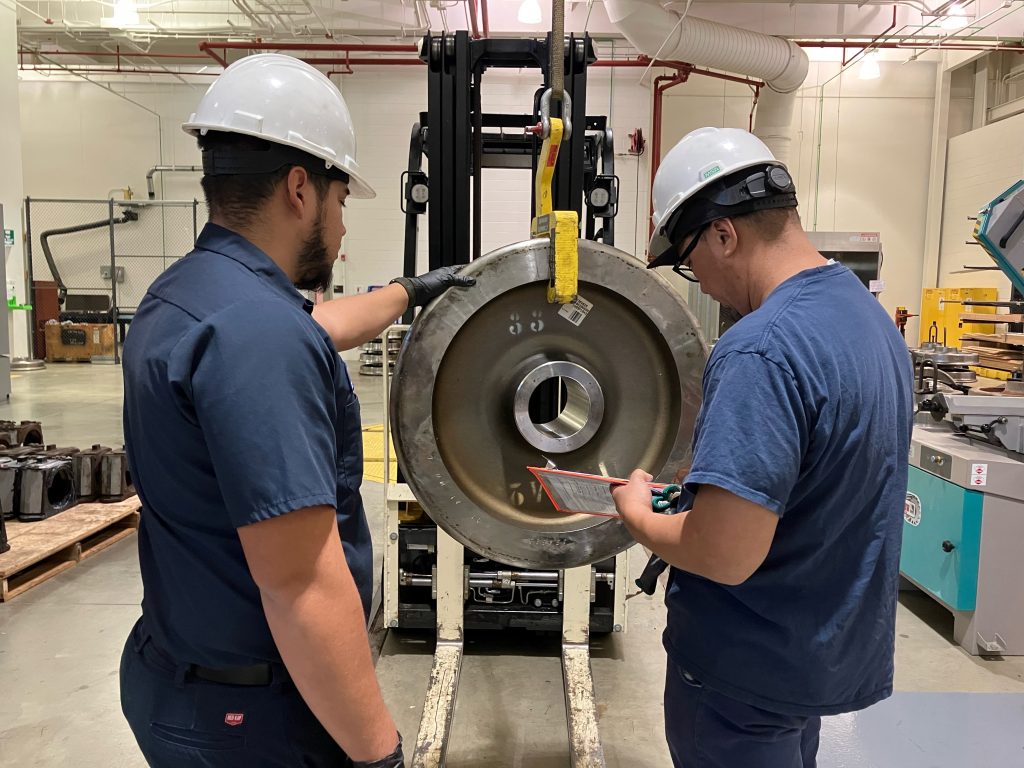WMATA Replacing Wheels on 7000-Series Fleet
12/6/2023

The Washington Metropolitan Area Transit Authority (WMATA / Metro) has begun replacing the wheels on all 7000-series (7K) railcars under new, higher standards that will allow for regular maintenance intervals and the addition of more 7K railcars to service.
Pressing wheels is an exhaustive process that requires 72 hours of work for each pair of railcars. Unlike changing the tires on a car, the entire wheel assembly or truck, including the axle, frame, and two wheels must be removed from the railcar, similar to removing the entire front end of a vehicle. The wheels must be disassembled from the truck, and new wheels with a tighter fit installed at an increased force onto the axle before being reassembled onto the railcar.
The work requires specialized equipment, customized and calibrated to Metro-specific production requirements and involves significant training to perform. After the wheels are pressed, the railcars undergo up to 30 hours of detailed inspections before going into passenger service. During the follow-up engineering analysis, the wheelsets must be removed from the railcars and taken apart for additional inspection and testing.
“We appreciate the tireless efforts of our safety and maintenance teams to develop this process to ensure we can safely return more 7000-series railcars to service, which are the newest and most reliable in our railcar fleet,” said Metro General Manager and Chief Executive Officer Randy Clarke. “It will take an extensive amount of work over the next few years, but as we begin to have more 7Ks available, customers will begin to see even more improvements in reliability and service.”
Once the wheel pressing process and training ramps up, Metro expects to complete approximately 20 cars a month. With 748 railcars, including 5,984 wheels on 2,992 axles, it is expected to take several years to return the entire fleet to normal service at an estimated cost of $55 million.